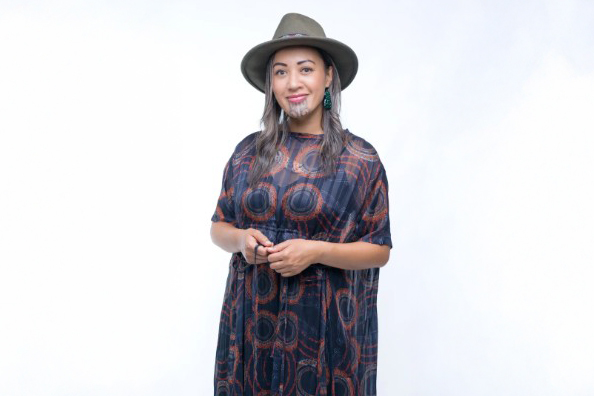Ihaia Harris is on the fast-track to learn te reo Māori but says it’s not a race and students should remember to have fun and learn at their own pace.
In 2019, while studying te reo Māori Level 2 He Pī Ka Pao, Ihaia realised he wanted more exposure to the language, and with the agreement of his kaiako, skipped the Level 4 He Pī Ka Rere course and went straight into the total immersion Level 5 Te Rōnakitanga ki te Reo Kairangi course this year.
Ihaia, who is studying at the Whangārei campus of Te Wānanga o Aotearoa, says while it was a big step from Level 2 to Level 5, it provided the challenge he was looking for.
“Level 2 was going so well, then I got myself well and truly involved and started realising this was opening up not just te reo Māori but te Ao Māori as well,” he says.
“I was talking about how it would be helpful for me if I could get more exposure to the reo. Fortunately, I managed to get the green light to do that and I’ve been able to continue on the haerenga.”
While he grew up around te reo Māori, Ihaia says he never paid it too much attention.
“I knew it was around me. My mum would take us to the marae quite often, but even though it was all around me, my eyes and ears weren’t as open as they were when I finally came to that point in my life where I needed to learn my reo, I needed to learn more about te ao Māori itself and my identity.”
Ihaia – Ngāti Whātua me Ngāpuhi – says he had been encouraged by other whānau learning te reo Māori with Te Wānanga o Aotearoa in Tāmaki and was happy to find a campus in Whangārei.
“I looked into what classes were available and then discovered they were free as well, bonus.”
Ihaia has recently launched a new business venture, providing medical alarms for the elderly, and says his growing te reo Māori proficiency is proving valuable, particuarly when working with kaumātua and kuia.
“When I’m with my Māori clients, one kōrero leads onto another, and whakapapa and that sort of thing. I enjoy learning about each other’s whakapapa and trying to connect the dots. Just that whole āhua that we learn here, helps with having that kōrero using our reo.”
He still finds it challenging to retain new words and realises there’s always something new to learn, but says learning should not be a competition.
“It’s not a race, it’s a lifetime journey,” he says.
“Take you time, have fun with it, don’t put too much pressure on yourself that you need to speak like everyone else at higher levels. It’s your journey, walk your path and fill your cup as you go long. It’s all knowledge which is flowing like a river and if you expect to catch all the water from that in one year, it’s not going to happen. You have to go back and get more, but the key thing is to keep moving forward, and don’t doubt yourself.”




































